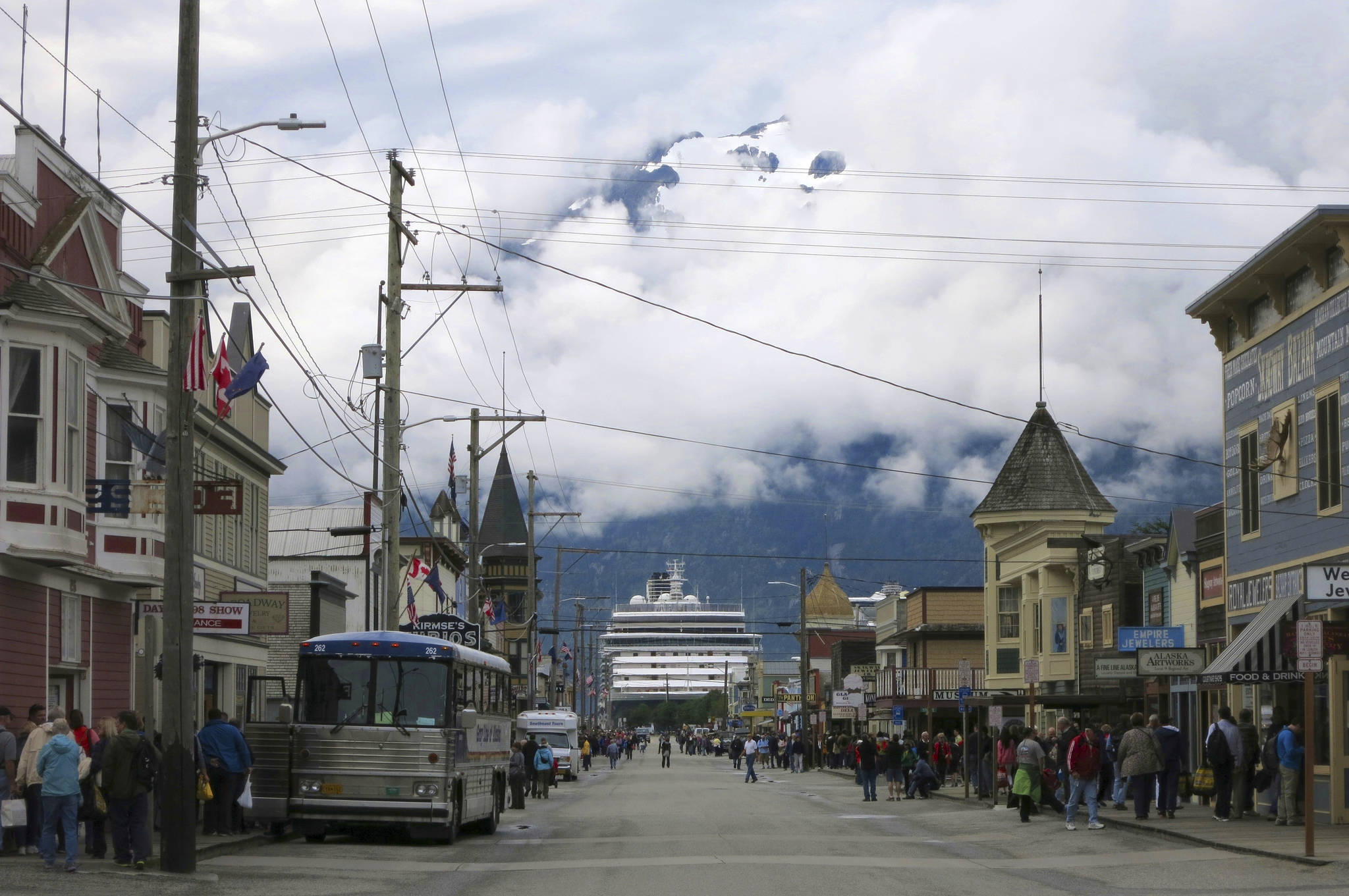By BECKY BOHRER
Associated Press
An old Gold Rush community in southeast Alaska that has built its economy around summer cruise ship tourism plans to use some of its share of federal coronavirus relief aid to help residents pay their bills in a move that a city official said could help save Skagway.
The city, with an estimated 1,100 year-round residents, recently posted an application online inviting locals impacted by the pandemic to apply for aid to help with expenses such as housing, utilities, insurance, food or child care. The maximum amount one could receive is $1,000 for each member of their household, though if the need is less, the award would be a lesser amount. Applicants must have a need and show through bills or receipts how the money is used.
The program is intended to help residents stay in Skagway through the winter, typically a lean time after the tourists clear out, and officials expect some of the money will circulate within the local economy and help businesses, too.
“For the most part, the entire town has been impacted. We don’t have an economy anymore. We’re a one-economy town,” borough manager Brad Ryan said, adding later: “It really is a program to preserve our community. If we don’t do this, we’re going to lose our community, is our biggest issue. People are going to have to move if we don’t do something.”
Streets that would be filled with tourists this time of year are uncomfortably quiet for business operators like Kristin Wagner, as major cruise lines have canceled sailings amid the pandemic. She called it spooky.
“I can enjoy the peace of it and the beauty of the nature with nobody there. But it also makes me sick,” she said. “My stomach kind of does a little lurch every time I look down Broadway and it’s empty because I just know the ramifications of it and what it means.”
Wagner’s parents own five businesses in town that she and other members of the family run, though one of the businesses, a boutique, isn’t opening this year, she said. Wagner manages Duff’s Backcountry Outfitters.
She said the money being offered through the city could be a lifeline for many residents. Her store currently is aided by a federal program that is aimed at helping small businesses keep employees on the payroll. If that ends, she said she probably will have to forgo her salary and apply for the program Skagway is offering.
She said her family has had a lot of difficult discussions about the future and there’s no way to avoid incurring significant debt, despite grant, loan and other programs available.
“We’re hoping to come out of it, wounded but alive,” Wagner said.
In Alaska, the city of Fairbanks is considering a similar program. Juneau plans to use some of its federal coronavirus aid for a childcare program and rental assistance grants.
Nils Andreassen, executive director of the Alaska Municipal League, said some communities are looking at subsidies for utilities. He said his office fields dozens of calls a week from communities seeking guidance on program ideas.
In Skagway, more than 700 people participated in a program that paid $400 to each applicant and $200 for each additional person in the household, Ryan said. Municipal funds were used for that and for reimbursing residents for signing up for air ambulance service.
For the new program, it is expected residents will be able to apply monthly, through December, though the local government can adjust amounts or put some of the federal aid money toward other programs if needed, Ryan said.
• This is an Associated Press report by Becky Bohrer.

